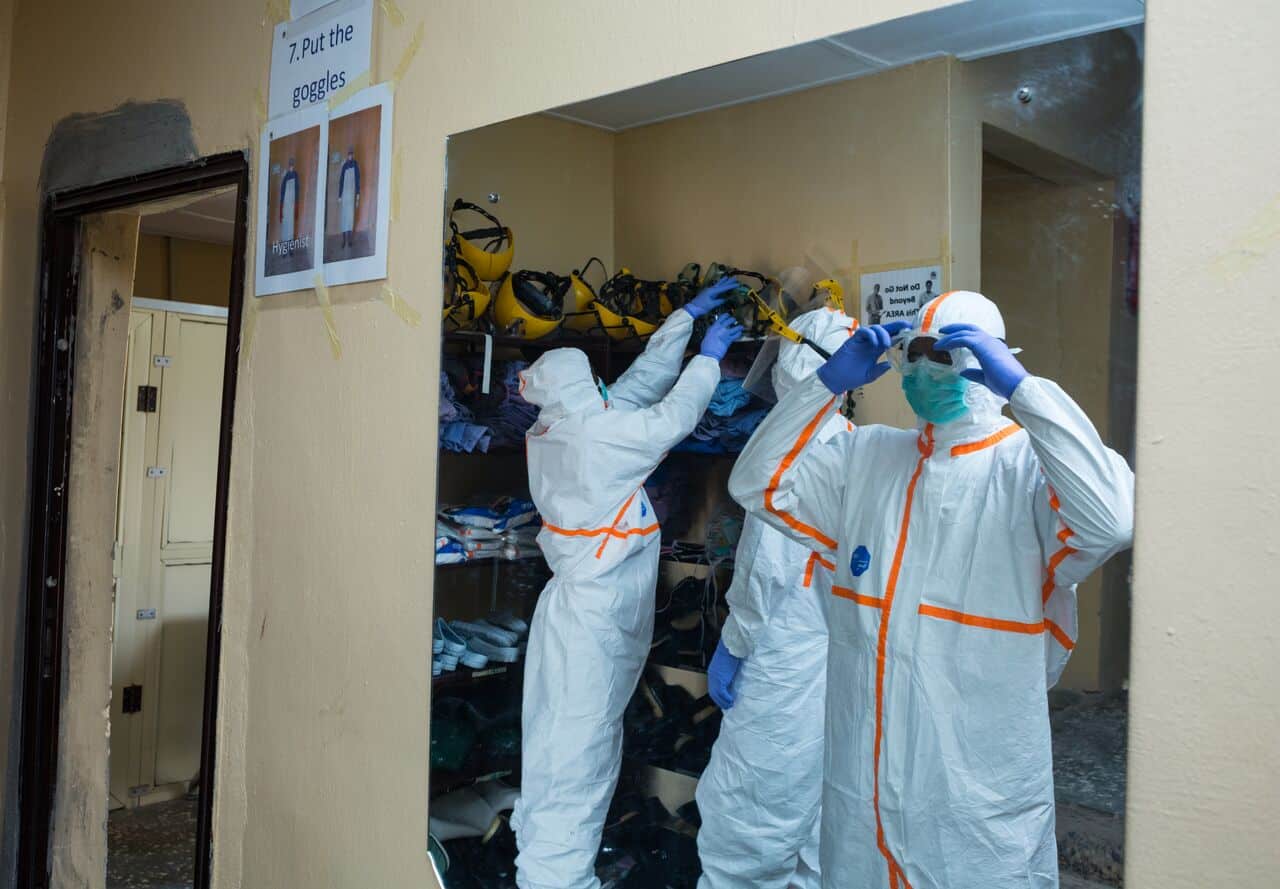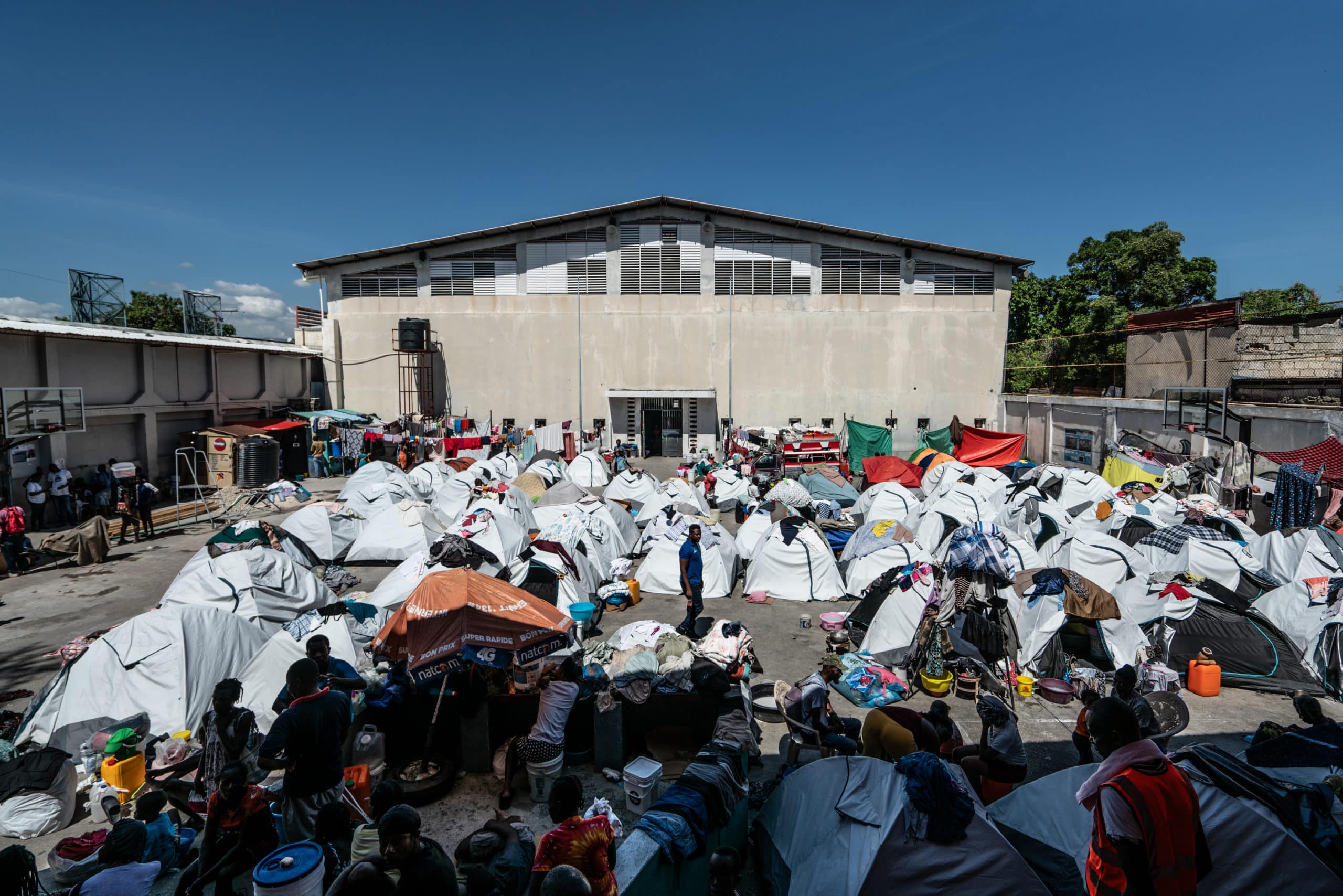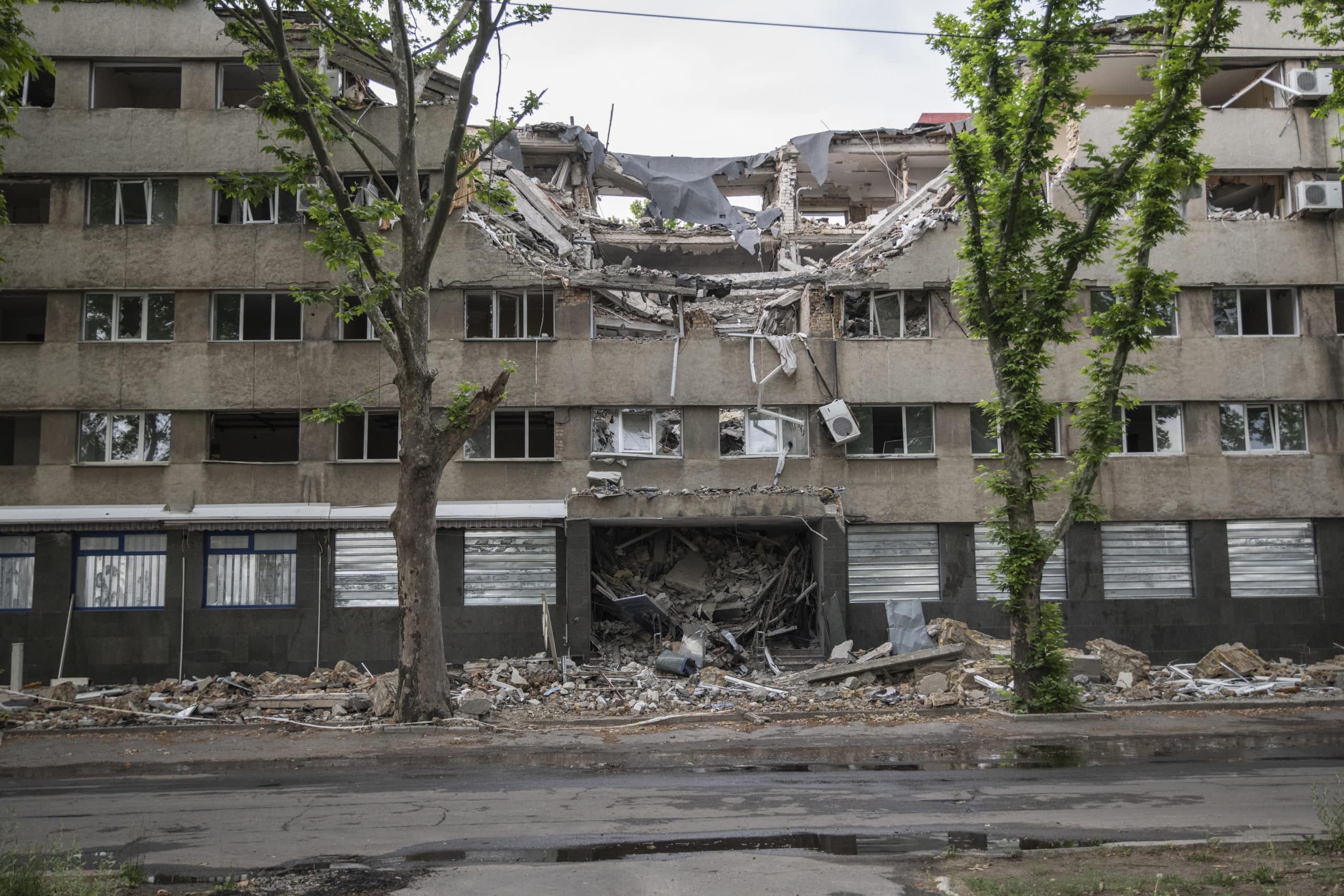In our 12 countries of intervention, ALIMA is collaborating with the Ministries of Health for the care of COVID-19 patients in Africa. In Senegal, ALIMA teams support the COVID-19 Treatment Center at Fann Hospital. This support, in terms of medical equipment and staff, aims to prevent and control the risk of infections within the hospital and limit the spread of the virus within the population. Six people from ALIMA are currently on site and triage support at the hospital entrance has started.
Preparing to receive infected patients
ALIMA first began discussions with the Fann Hospital in Dakar two weeks before the admission of the first confirmed patient with coronavirus, in order to prepare a response. In Senegal, all reported cases must be treated in a hospital setting, in order to safely keep patients from an overcrowded living situation, and thus break the chain of transmission. Fann Hospital currently has a capacity of 71 beds and 10 intensive care beds. The objective for the Senegalese Ministry of Health is to increase the number of beds, as well as the existing resuscitation capacity. As of April 3, there were 207 confirmed cases in Senegal, of which two were in serious condition – requiring oxygen therapy or resuscitation care.
Patient care
When a patient is admitted to the Fann University Hospital in Dakar, he/she is directly referred by ambulance to the triage unit of the COVID Treatment Center.
“At the entrance of the COVID unit, the patient is immediately examined and taken care of by medical staff who will then transfer him/her to an individual room, where the medical team at the Treatment Center will be able to provide the necessary care,” says Nicolas Mouly, ALIMA’s Program Manager for Emergency Response and Country Openings service.
Concerning the arrival of the peak of the COVID-19 epidemic in Senegal, Nicolas Mouly explains: “Our teams are following the epidemiological trend of all other countries, where there is a delay of between 4 and 6 weeks before there is a really sudden increase in the number of cases … We expect to arrive in Senegal in this phase in about ten days”.
Life-saving needs
The current challenge is to supply as much medical and personal protective equipment as possible, and to find the human, medical and logistical resources to help manage the flow of patients.
“As far as Fann Hospital’s stocks are concerned, we are far from the level of production we have in European countries, which are themselves overwhelmed,” Nicolas Mouly says. “We are trying by all means to find supply sources. There will certainly be local production solutions, but we’re going to have to do this on a very large scale. For the moment, we are looking to Asian countries that have passed the peak of the epidemic and have masks available.”
Discover our photo story from the Fann Hospital in Dakar:
At the entrance of the Fann University Hospital in Dakar, visitors temperatures are checked before entering the hospital. April 1st, 2020, Dakar, Senegal. © John Wessels / ALIMA
Astou Diop, a nurse for the Senegalese Ministry of Health, puts on personal protective equipment, before carrying out checks on infected patients at the Fann University Hospital in Dakar. Before she can enter the ‘red zone’, where the patients with COVID-19 are being cared for, she must wear this to avoid any risk of contamination. © John Wessels / ALIMA
In the ‘red zone’ of the Fann University Hospital in Dakar, where patients with COVID-19 are treated, Astou Diop, a nurse from the Senegalese Ministry of Health, dressed in Personal Protective Equipment, is about to visit patients infected with the virus. © John Wessels / ALIMA
A hygienist working with the Senegalese Ministry of Health wears his Personal Protective Equipment (PPE) to go and disinfect the area where patients with the COVID-19 virus are cared for. The medical teams at the Fann University Hospital in Dakar and supported by ALIMA, must wear their PPE to protect themselves and avoid contamination. ©John Wessels / ALIMA
*ALIMA’s project in support of the Fann Hospital is made possible thanks to generous funding from UNITAID, which finances ALIMA in Senegal, as well as in Niger, Mali, Burkina Faso and Guinea, to meet the demand for oxygen supplies. In Senegal, UNITAID’s support is helping to strengthen infection prevention and control measures and reinforce triage systems.
To find out more, read some interviews with our teams:
Nicolas Mouly, Head of ALIMA’s Emergency Response & Country Openings department
Dr. Papys Lame, ALIMA’s Medical Manager for the Emergency Response & Country Openings department
Read our press release
—
Cover photo: © John Wessels / ALIMA



